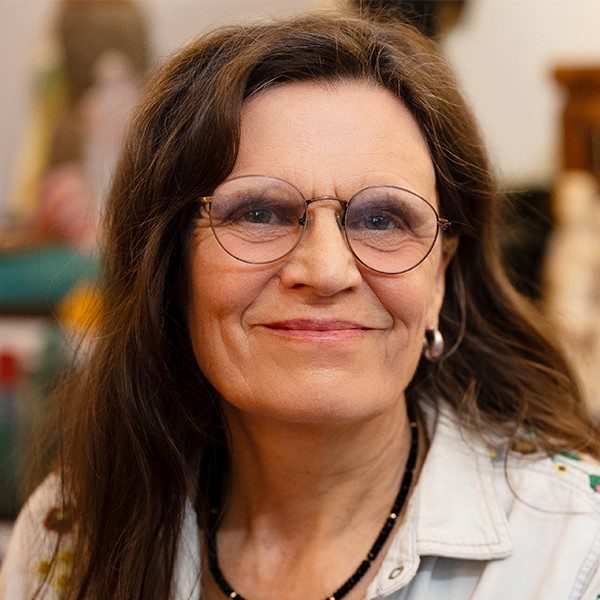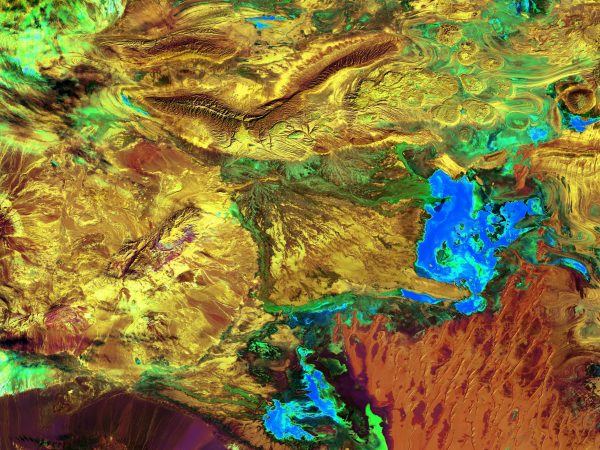There are forms of power beyond brute force–power that the erasure of truth, beauty, memory, or historical reality cannot sever. This power is rooted in our deep, collective interconnectedness within the mysterious and magical sacred web of life.
There is also the power of the Dharma, with its potent medicine for the aching heart of this world, offering pathways of healing and transformation.
Here on retreat–a space for healing, inquiry, and deep insight–I’ve been reflecting on what it truly means to “retreat” at a time like this. What if a retreat is not an escape from the world, as it’s often perceived, but rather a shift in how we engage with the world? With some internal pivots and teaching frames, a long retreat like the one we’re currently hosting becomes rigorous training for these times.
At the heart of this shift is the recognition that the “world” we seek to escape is essentially a projection of the mind–a mind dominated by greed, hatred, and delusion. With this understanding, the connection between inner liberation and outer decolonization becomes clear. Inner practices such as meditation and deep contemplative inquiry serve to strengthen us, preparing us to resist, strategize, mobilize, and endure for the long haul.
What was once a more revolutionary path of liberation has, for the most part, been repackaged as a self-help tool for enduring capitalism.
In this light, intensive meditation guided by Dharma teachings becomes a powerful tool for decolonizing the mind, liberating the heart, and releasing the deep energetic patterns stored in our somatic body. It helps us reclaim our authentic energy and clearly see the root of all domination and violence: a distorted sense of separateness that breeds repression, projection, and division. We can cultivate compassion, harness the power of protective mantras, and find a refuge deeper than suffering.
Unless we connect these inner shifts–born from clear seeing–with the urgent work of transforming outer systems, we are headed toward an unimaginably dark and violent future. But once we begin the conscious work of freeing the mind from delusion, fear, and greed, it becomes clear: inner liberation and outer transformation are inseparable. From this clarity, we can act, not out of reactivity but from alignment with what truly serves life.
The choice before us is stark: surrender to fear, propaganda, and control, or reclaim our power and swiftly generate a mass counter-movement underwritten by vital shifts of consciousness.
Reclaiming the Dharma’s Revolutionary Core
The question is: can contemporary and traditional Dharma spaces rise to meet this moment? Can we extend beyond our silos and lineages to combine the substantial assets, skills, and resources available within Buddhist sanghas to actively strategize and mobilize?

Will we help save the day, or will we remain as silent witnesses while demons overtake the world?
If the silence, or at best, the lukewarm response to the ongoing genocide in Gaza and its implications for the world, is any indication, then we cannot expect this to happen in any significant way. So, what will it take? Will the sheer terror of watching unchecked power move freely, enacting the worst human impulses, finally be enough to move the dial?
Those intent on fascism won’t stop, and neither can we. So perhaps remembering two things will help us focus and prioritize.
First, the fact that this threat is now personal should capture our attention. It affects nearly all of us: our safety, our rights, our children, and our ability to live fully, love freely, speak out, and survive, let alone thrive.
Second, the Dharma has a radical and revolutionary core as embodied by the Buddha himself. It advocates for liberation beyond societal norms and power structures while opposing the hoarding of wealth and the oppression of all beings. Instead, the Buddha urged his disciples to move in all directions, driven by deep compassion, to alleviate suffering and actively promote the welfare of everyone.
What we need is a return to this courageous heart. While the mindfulness movement has brought genuine benefit to countless lives, offering tools for presence, healing, and resilience, too often, especially in the commodified explosion of mindfulness, the radical edge of Dharma has been dulled. It’s been replaced by a consumer spirituality that quietly reinforces the very systems threatening our collective safety and future.
Mindfulness, when disconnected from engaged Dharma, and meditation practices overly focused on self-benefit have essentially been transformed into yet another productivity hack–a way to stay calm while functioning more efficiently within a collapsing capitalist system. This consumer spirituality fails to challenge oppressive structures; instead, it supports them. It teaches us to “cope” rather than confront, to self-regulate instead of collectively resisting. Mindfulness becomes a way to manage burnout while remaining productive within the very machinery that is causing our burnout.
But Dharma isn’t about adapting to injustice. It urges us to see through it, challenge it, and transform the system as the Buddha did. Instead, the radical edge of the Dharma has been stultified, neutered, and sold back to us in digestible, soothing fragments. What was once a more revolutionary path of liberation has, for the most part, been repackaged as a self-help tool for enduring capitalism.
What if a retreat is not an escape from the world, as it’s often perceived, but rather a shift in how we engage with the world? With some internal pivots and teaching frames, a long retreat … becomes rigorous training for these times.
Let’s be real: this multi-headed monster is coming for everyone who refuses to bend the knee. We can’t afford delay. Now is the time to network, find our collaborators, and move with urgency. For that, we need a clear and unified vision. One that offers guidance, courage, and a deeper and coherent sense of collective purpose.
As Alnoor Ladha reminds us, we must stop abdicating responsibility and questioning nothing. We must interrogate the very orthodoxy of power and the belief that those in power will somehow save us.
Clearly, they won’t. So, this is our moment: to collectively strategize, organize, step up, and step out. However, to sustain that movement and fuel it with more than outrage, we need this bold and life-affirming vision of the world we’re fighting for, not just the one we resist. This vision must be rooted in interdependence, dignity, care, and justice while reimagining how we live, relate, and share power.
Read the full essay, From Collapse to Collective Power, on Thanissara’s substack. It is reprinted here with permission.







